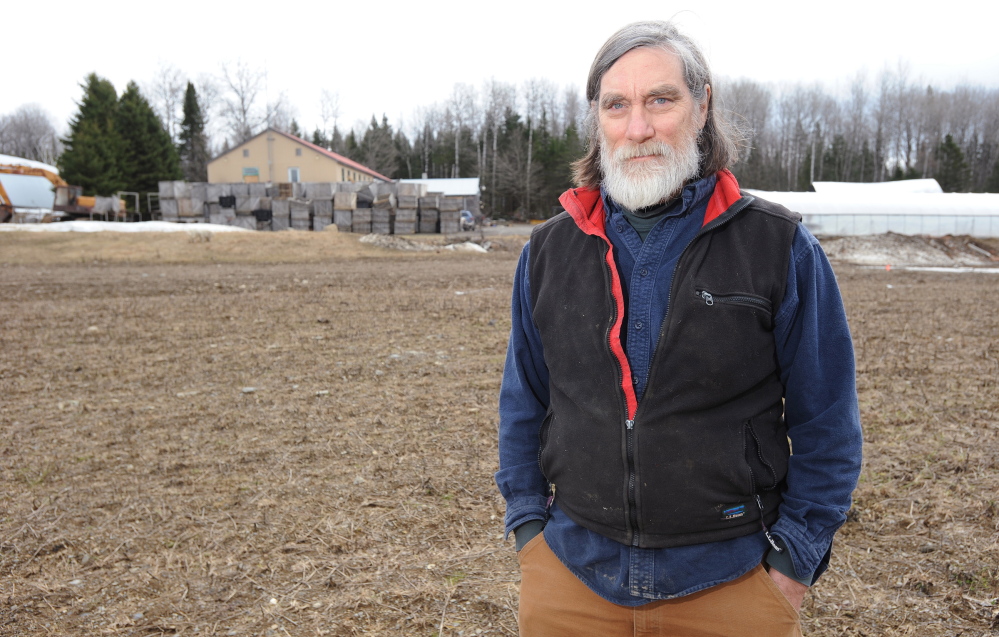AUGUSTA – The fight over mining returned to the State House on Wednesday as dozens of people urged lawmakers to once again reject proposed rules linked to a Canadian company’s plans to extract gold and other minerals from a northern Maine mountain.
In a repeat of hearings held on an identical proposal last year, lawmakers heard eight hours of testimony from about 70 speakers focused largely on whether mining represents an economic opportunity or an environmental threat to Maine.
The Maine Department of Environmental Protection is seeking legislative approval of new rules that supporters say could help revive the state’s all-but-nonexistent metal-mining industry while protecting the environment. But critics, who accounted for the vast majority of speakers on Wednesday, argued the proposals do not go far enough to protect water from mine contamination or to hold companies accountable for long-term cleanup of sites.
“Weakening existing mining regulations is bad policy,” said Jim Gerritsen, who grows organic potatoes on a farm roughly 40 miles from Bald Mountain, the site of what is believed to be one of Maine’s largest mineral deposits. “Our priority must be protecting Maine’s environment.”
Bald Mountain wasn’t officially on the agenda Wednesday but that didn’t stop opponents from drawing a direct line between the rules and the Aroostook County mountain. Located in a remote spot roughly 35 miles west of Presque Isle, Bald Mountain has been on the radar screen of would-be mining companies for decades because of significant deposits of gold, silver and other metals.
New Brunswick-based J.D. Irving Ltd., which owns Bald Mountain and more than 1 million acres in Maine, has been seeking revisions to the existing rules, which have all but eliminated metal mining in the state since their adoption in 1991.
“We believe that the rules you have in front of you today are adequate to allow responsible development of a mining industry in the state of Maine,” said Anthony Hourihan, a representative for Aroostook Resources, an Irving subsidiary set up to explore a mine at Bald Mountain.
Opponents contend that large-scale metal mining is inappropriate in Maine given the state’s wet weather and the potential for contaminating lakes and rivers that are key to the outdoor economy.
They claim the rules would allow mining operations too close to water bodies and public reserve lands, fail to adequately protect groundwater and could saddle taxpayers with clean-up costs if a mining company goes bankrupt.
Rep. Ralph Chapman, D-Brooksville, was one of several speakers to point toward the former Callahan Mine as an example of the long-term mining risk. A former copper and zinc mine in the coastal Hancock County town of Brooksville, Callahan Mine is on the U.S. Environmental Protection Agency’s list of Superfund cleanup sites.
“The mine closed 40 years ago, but we have a situation in which a new problem is developing due to the weatherization of waste-pile rock,” Chapman said.
But Steve Pinette, a consulting hydrogeologist from Scarborough who helped develop the 1991 mining rules, urged the committee to endorse the proposals. Pinette said the new rules, while not perfect, would require more extensive modeling, risk analysis and monitoring.
“I’m convinced the proposed rules are much more protective than the rules that they seek to replace,” Pinette said.
The proposed rules would apply statewide despite the overwhelming emphasis on Bald Mountain. The Maine Geological Survey has identified 10 sites of “significant known metallic mineral deposits,” including Bald Mountain, plus dozens of known deposits that have yet to be fully explored.
The Board of Environmental Protection approved the proposed rules in late 2013 after the Legislature directed the board to develop new rules for metal mining a year earlier. But the Legislature rejected the proposal and directed the DEP to return with new rules in 2016. Gov. Paul LePage vetoed the Legislature’s action, leaving the proposed rules in limbo.
Critics of the rules and some lawmakers questioned whether the committee should even be considering the proposal.
On Monday, two assistant attorneys general wrote a memo to the committee suggesting that the DEP did not follow the proper rule-making procedures when it resubmitted the same proposals to the Legislature this year.
The committee’s co-chairmen, Republican Sen. Tom Saviello of Wilton and Democratic Rep. Joan Welsh of Rockland, said the memo did not preclude the committee from working on the bill containing the proposed rules.
Send questions/comments to the editors.




